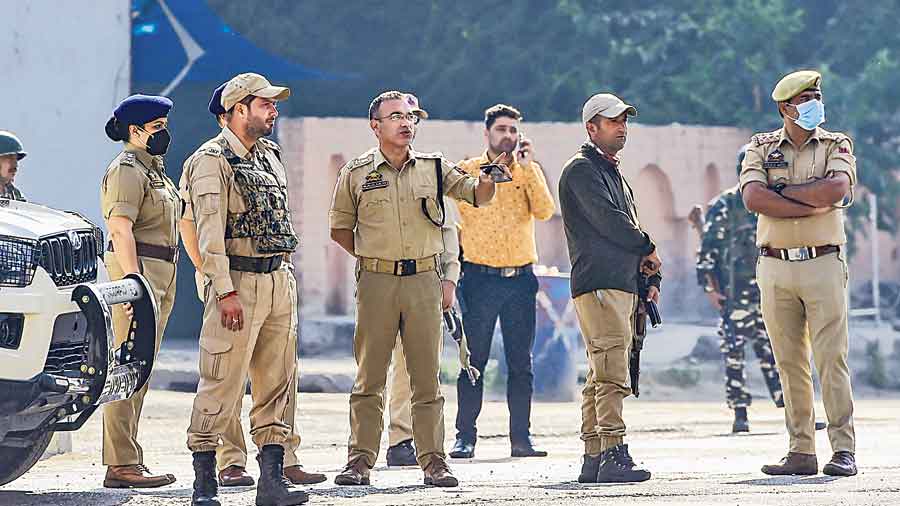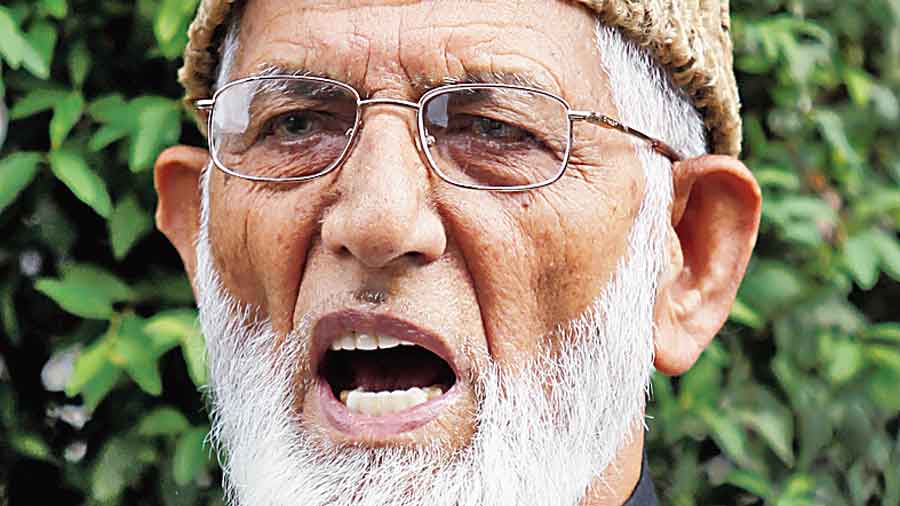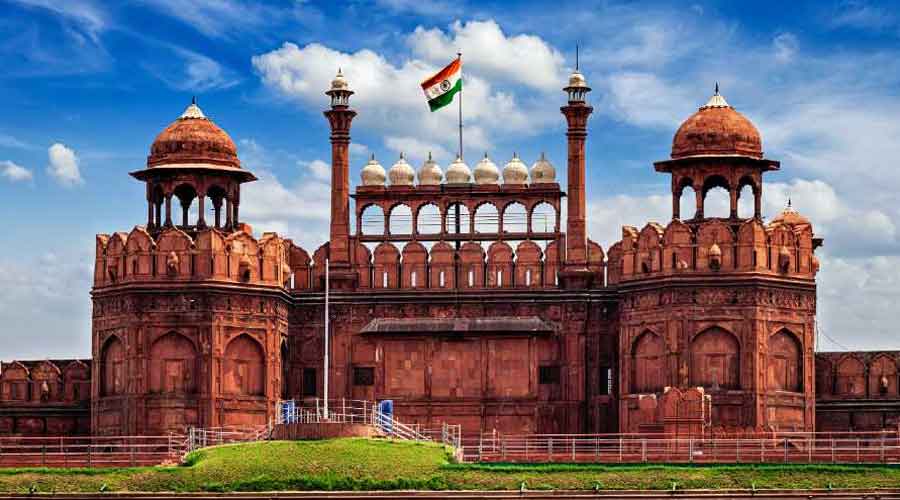Hurriyat hawk Syed Ali Shah Geelani had been long dead politically but the Jammu and Kashmir administration found his lifeless body too hot to handle on Wednesday night.
The administration virtually stole the body from his home, amid protests from his family, to prevent a mass funeral that would almost certainly have triggered anti-India protests.
The 92-year-old separatist, who died at 10.30pm, was quietly buried before dawn at a graveyard near his home. Even his immediate family was not allowed at the funeral, Geelani’s son Naseem said.

Policemen keep vigil at Hyderpora in Srinagar on Thursday after restrictions were imposed across the Valley as a precautionary measure following Hurriyat leader Syed Ali Shah Geelani’s death on Wednesday night. The Independent Permanent Human Rights Commission of the Organisation of Islamic Cooperation has condemned the hurried burial of Geelani by the Indian government. Geelani was buried before dawn on Thursday at a burial ground near his house with even his immediate family not allowed at the funeral, his son Naseem said. In a tweet, the OIC-IPHRC said it “strongly condemns action of Indian government to deny right to choose burial rites and site for Syed Ali Shah Geelani, an iconic Kashmiri leader, who over 7 decades peacefully supported human rights & freedoms of Kashmiri Muslims incl (including) their Rt to SD (right to self-determination) as enshrined (in the) UNSC Res (resolution)”. The OIC’s human rights commission also condemned the Centre’s decision to impose a communication blockade in Jammu and Kashmir by “snapping Internet, imposition of curfew/restrictive lockdown limiting freedom of movement and assembly of Kashmiris to deny them to peacefully mourn and bid farewell to their beloved leader’’. The external affairs ministry did not respond to media requests for a reaction to the OIC statement. Report by our special correspondent
Geelani had wanted a burial at the “martyrs’ graveyard” in Srinagar where scores of people, killed largely in security force action, are buried.
The government imposed a near total communication blockade and stringent restrictions on movement to prevent people joining his funeral. There were no reports of violence.
Naseem said the authorities forcibly took the body away at 3am. The administration had begun barricading the localities leading to Geelani’s Hyderpora home as soon as the news of his death arrived. By 4.30am, the funeral was done.
A family source said Geelani’s nephew Abdul Rasheed Shah, whom security forces prevented from entering the Geelani home on Wednesday night, was the only relative to witness the last rites.
“Since he was outside the house, he was allowed to join the funeral,” the source said.
“While Geelani’s body was being forcibly taken away, the women resisted and argued but they (police) did not relent.”
Kashmir police chief Vijay Kumar denied the allegations and claimed the police had helped bring the “body from the house to the graveyard as there was apprehension that miscreants might take advantage”. He claimed Geelani’s relatives had participated in the funeral.
The family was allowed to visit Geelani’s grave at 10am on Thursday.
While supporters widely mourned the charismatic but controversial leader’s death, the situation remained largely peaceful, as has been normal in post-2019 Kashmir.
Many lauded Geelani for his purportedly unwavering stand on Kashmiri independence. “He didn’t give up, he didn’t give in,” wrote Ashwaq Masoodi, a Kashmiri and a Harvard fellow.
But Geelani’s publicly anti-India stand masked contradictions. He contested five Assembly and three parliamentary elections, getting elected to the state legislature in 1972, 1977 and 1987.
He is believed to have initially opposed the militancy but did an about-turn after sensing the public mood. His critics accuse him of preaching violence to others and peace to his family. None from his extended family joined the militancy.
Geelani had chosen silence on the dilution of Article 370, apparently for fear of his family being hounded. He began mellowing his anti-India rhetoric after the NIA summoned his sons for questioning in a “terror funding” case.
Staunchly pro-Pakistan, Geelani had multiple run-ins with Islamabad, sometimes because he found it too moderate on Kashmir.
Pakistan declared a day of mourning for Geelani. Prime Minister Imran Khan tweeted a homage and said the Pakistani flag would fly at half-mast on Thursday.












